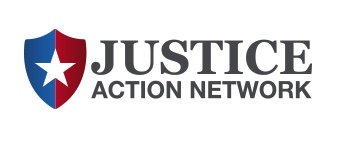|

As COVID-19 spreads rapidly across the country, it’s critical for all parts of society to work together to mitigate the impact on vulnerable populations, and that includes people in the justice system.
Throughout this crisis, we will work to share information with you about steps that are being taken to “flatten the curve” inside the justice system, and to protect incarcerated men and women who are most at risk. We hope this can help inform and drive advocacy and action across the country.
You can see previous updates at www.JusticeActionNetwork.org/COVID19
Here are some of the things you should know:
In an internal memo, Philadelphia Police Commissioner Danielle Outlaw notified commanders that the city would delay arrests for nonviolent crimes including theft, drug offenses, financial crimes, and prostitution. Police still detain suspects to be fingerprinted and identified at the scene, and submit paperwork for charges to be filed later. The move was supported by the Fraternal Order of Police, who issued a statement saying the directive would help keep officers safe.
The California Division of Adult Parole Operations (DAPO) suspended all office visits for those aged 65 or older and with chronical medical conditions. Citing the transmission risks associated with mass transit, DAPO also directed people on supervision to contact their parole agent by phone for guidance on whether they need to come in.
On Wednesday, the Arizona Department of Corrections announced they would immediately waive co-pays for incarcerated people who are experiencing flu or cold symptoms. Wardens will also initiate weekly deep cleanings of all facilities, and ensure “robust availability” of soap and cleaning products for correctional staff and people who are incarcerated.
Since February 28, the Los Angeles County Sheriff’s Department has reduced the jail population by more than 600 people. Sheriff Alex Villanueva said he would continue to release people who had fewer than 30 days left to serve, and allow deputies to cite and release anyone whose total bail would amount to less than $50,000. Countywide, average daily arrests have dropped from 300 to 60.
A letter signed by 40 current or former probation and parole executives offered guidance and recommendations to promote social distancing, provide supervision support, and protect public safety. Their recommendations included suspending or limiting technical violations during the crisis, and allowing people to report via telephone, online, or by postcards.
If there are developments in your area that you would like to highlight, please share them with us by tweeting @USJusticeAction.
All the best,
Carrie
Carrie Glenn
Director of Coalitions
Justice Action Network
|